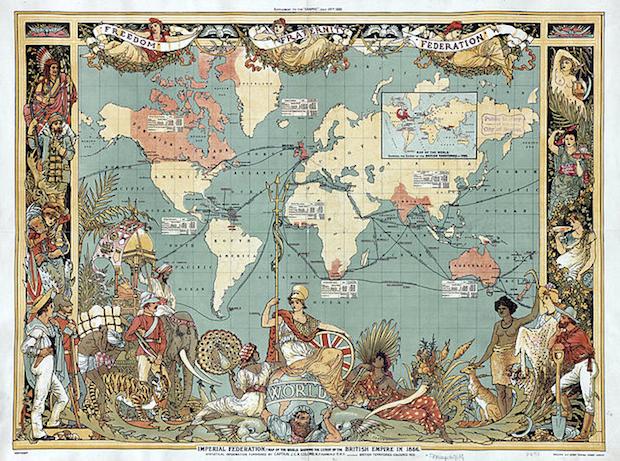‘World Order’ and the Need for Restraint

Robert Kagan delivers another sermon about “world order” that will convince no one who isn’t already in agreement with him:
Today the rocks are being overturned again. Those who have been arguing that we should pull back from the world and show greater restraint tell us we need to accept the world “as it is.” But they have no idea what the world “as it is” really looks like. They grew up inside the bubble of protection provided by U.S. power and the liberal world order it sustained, a world in which other nations were forced to adjust their behavior to those realities of power.
If advocates of restraint don’t know what the world “as it is” looks like, it is difficult to see how Kagan has any better understanding of it. According to Kagan, all of us grew up inside the same “bubble of protection,” and so we all must be at the same disadvantage in knowing the world “as it is.” It still seems to me that some of us have a better grasp on history and human nature than others, and some of us have been mostly right about the major foreign policy issues of the last thirty years and some have been disastrously wrong. Guess which group Kagan belongs to.
There is no reflection here or in any of his other recent pieces on how the destructive pursuit of maintaining U.S. global hegemony has undermined and damaged the “world order” that Kagan claims to value so much. It is difficult to take Kagan’s warnings about a recent breakdown in order seriously when he and other interventionists like him have been hammering away at that order for at least twenty years. He is very confident that other states would have behaved very differently and worse in the absence of U.S. hegemony, but he doesn’t seem the least bit concerned by how that hegemony has allowed and encouraged the U.S. to behave in a reckless and destructive fashion for decades.
Kagan naturally doesn’t mention the Iraq war, but he also doesn’t mention any of the other destabilizing actions that the U.S. has taken in the last twenty years that have contributed to current problems. He doesn’t mention these things because calling attention to the chaos that the U.S. has created in the name of exercising “leadership” doesn’t fit his narrative of a benevolent hegemon upholding order. The key flaw in Kagan’s argument (and worldview) is that he cannot accept that an unrestrained U.S. hegemon is a major threat to “world order” and that restraint is necessary to keep the U.S. from doing more damage than it already has.
Comments